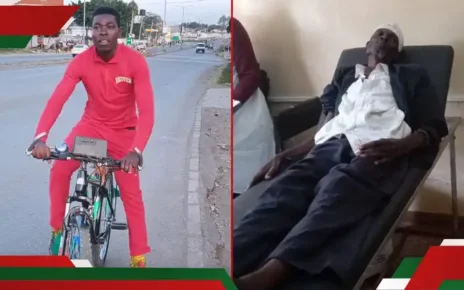The recent detention of Uganda’s opposition leader, Kizza Besigye, during his visit to Kenya has ignited widespread condemnation and raised concerns about potential covert intelligence sharing between the two nations. Besigye’s allies and his wife have revealed disturbing details of how he was allegedly lured into a trap by individuals posing as Kenyan security agents.
Reports suggest that Besigye was monitored from the moment he boarded a flight from Entebbe airport in Uganda to Nairobi, Kenya’s capital. Upon arrival, he was reportedly picked up and later transferred to Uganda, without any extradition procedures, leading many to question the involvement of Kenyan authorities. While Kenya denies any participation and claims to be investigating the incident, Uganda insists that Kenya was fully aware, pointing to intelligence correspondence that tracked Besigye’s whereabouts.
Besigye’s detention has been extended by a military court in Kampala until next week, and his case continues to make headlines.
Besigye, a long-time challenger to President Yoweri Museveni, has contested and lost four presidential elections since Museveni took power in 1986. Although less active in politics in recent years, Besigye formed a new political party, the People’s Front for Freedom (PFF), after leaving the Forum for Democratic Change (FDC), which he co-founded. Besigye has frequently traveled to Kenya for various events, even as he remained one of Museveni’s most prominent critics.
On November 16, Besigye traveled to Nairobi to attend the launch of a book by Kenyan opposition leader Martha Karua. After arriving in Nairobi and heading to his hotel, Besigye left later in the day for a private meeting on Riverside Drive. This was the last time he was seen publicly before he resurfaced in Uganda four days later. His taxi driver waited for over 12 hours, unable to contact him. As his phones went unanswered, Besigye’s disappearance began to make headlines, and his wife, Winnie Byanyima, reported that her husband had been kidnapped.

Besigye’s disappearance drew attention when his seat at the book launch remained empty, raising alarms among event organizers. His wife later revealed that Besigye had been scheduled to meet with an unidentified Ugandan and a British national, the latter allegedly intending to introduce him to a group of potential backers for his new party. In the meeting, there was a box of money and an individual with two guns, according to Byanyima.
Shortly after this meeting, eight men, claiming to be Kenyan police officers, arrived and arrested Besigye and his companion. Despite his protests that he had no involvement with the items in the room, they were both detained. The men, speaking Swahili initially, switched to Ugandan languages once they began transporting Besigye and his ally. They were driven under cover of night to Uganda, crossing the border at the Malaba post without undergoing routine security checks.
Reports suggest that Besigye’s arrest had been in the works for months, involving individuals close to him. His wife accused the British national involved in the meeting of being a paid operative who had attempted to plant weapons on Besigye.
Ugandan officials claim that they had intelligence about Besigye’s activities while in Nairobi, with Information Minister Chris Baryomunsi stating that Kenyan authorities were aware of the operation. Despite Kenya’s denials, Ugandan officials assert that Kenya had knowledge and support for the cross-border action. Besigye is now being tried in Uganda, as the alleged crimes were deemed to have occurred against Uganda rather than Kenya.
Besigye is facing charges in a military court for possessing firearms and seeking to acquire weapons from foreign sources, including in Geneva, Athens, and Nairobi. Besigye has rejected the military court jurisdiction, arguing that the offenses occurred outside Uganda. His legal team also contends that the trial is illegal due to the lack of an extradition process. Despite these objections, the court has allowed the trial to proceed, and Besigye remains in detention.

The situation has strained relations between Kenya and Uganda. While Ugandan officials insist there was intelligence sharing between the two countries, Kenyan authorities have been reluctant to provide clear answers. Some Kenyans have begun questioning the extent of security cooperation between the two countries, while Ugandans have protested outside the Kenyan embassy in Kampala, with some threatening to boycott Kenyan brands.
Besigye’s detention follows a series of controversial abductions in Kenya, including the forced deportation of Turkish refugees to Ankara, where they were allegedly involved in political opposition to Turkish President Recep Tayyip Erdogan. The unfolding saga of Besigye’s detention has cast a shadow over Kenya’s relationship with Uganda and raised significant questions about regional security cooperation.



